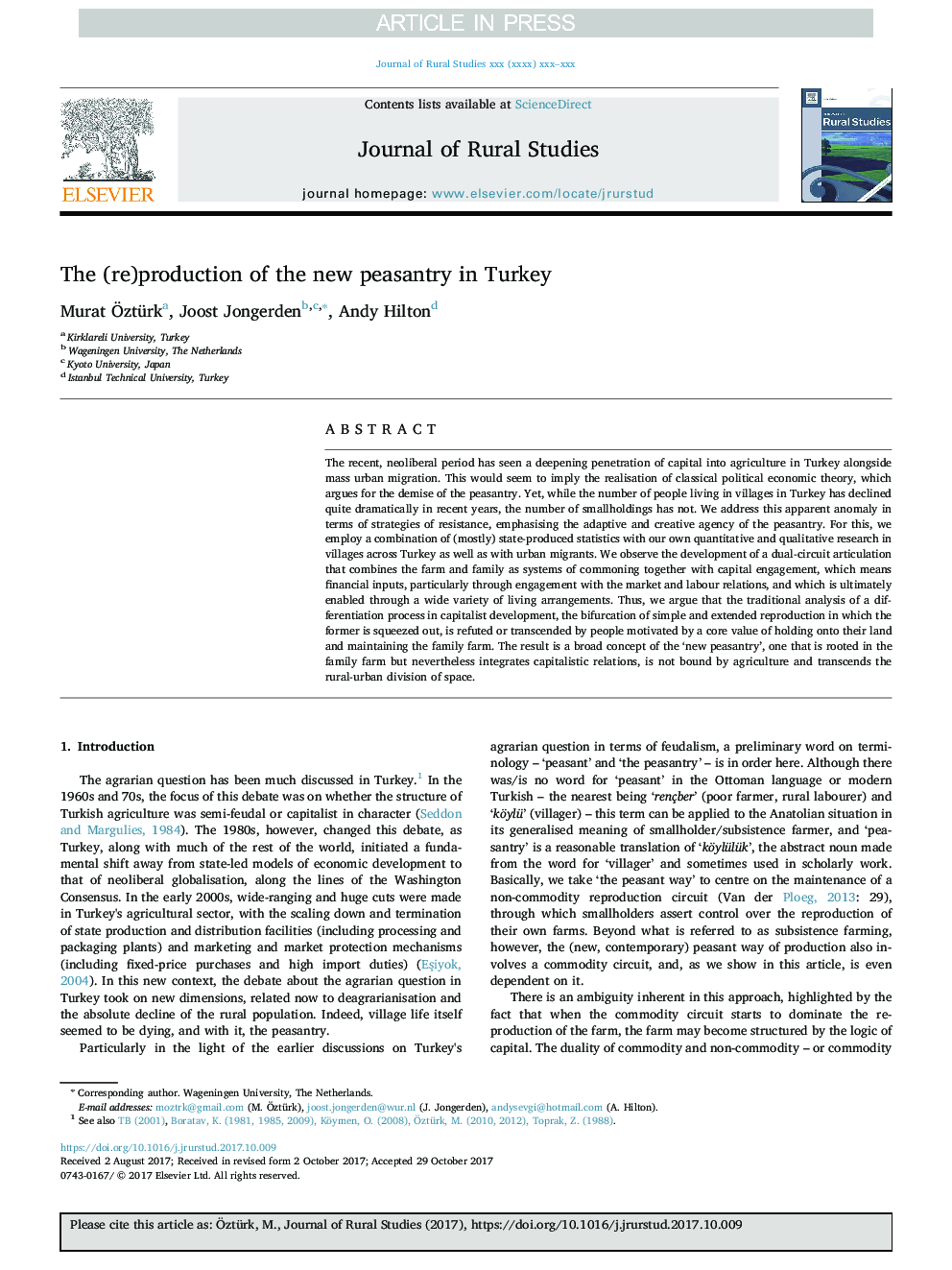| Article ID | Journal | Published Year | Pages | File Type |
|---|---|---|---|---|
| 6545254 | Journal of Rural Studies | 2018 | 11 Pages |
Abstract
The recent, neoliberal period has seen a deepening penetration of capital into agriculture in Turkey alongside mass urban migration. This would seem to imply the realisation of classical political economic theory, which argues for the demise of the peasantry. Yet, while the number of people living in villages in Turkey has declined quite dramatically in recent years, the number of smallholdings has not. We address this apparent anomaly in terms of strategies of resistance, emphasising the adaptive and creative agency of the peasantry. For this, we employ a combination of (mostly) state-produced statistics with our own quantitative and qualitative research in villages across Turkey as well as with urban migrants. We observe the development of a dual-circuit articulation that combines the farm and family as systems of commoning together with capital engagement, which means financial inputs, particularly through engagement with the market and labour relations, and which is ultimately enabled through a wide variety of living arrangements. Thus, we argue that the traditional analysis of a differentiation process in capitalist development, the bifurcation of simple and extended reproduction in which the former is squeezed out, is refuted or transcended by people motivated by a core value of holding onto their land and maintaining the family farm. The result is a broad concept of the 'new peasantry', one that is rooted in the family farm but nevertheless integrates capitalistic relations, is not bound by agriculture and transcends the rural-urban division of space.
Related Topics
Life Sciences
Agricultural and Biological Sciences
Forestry
Authors
Murat Ãztürk, Joost Jongerden, Andy Hilton,
